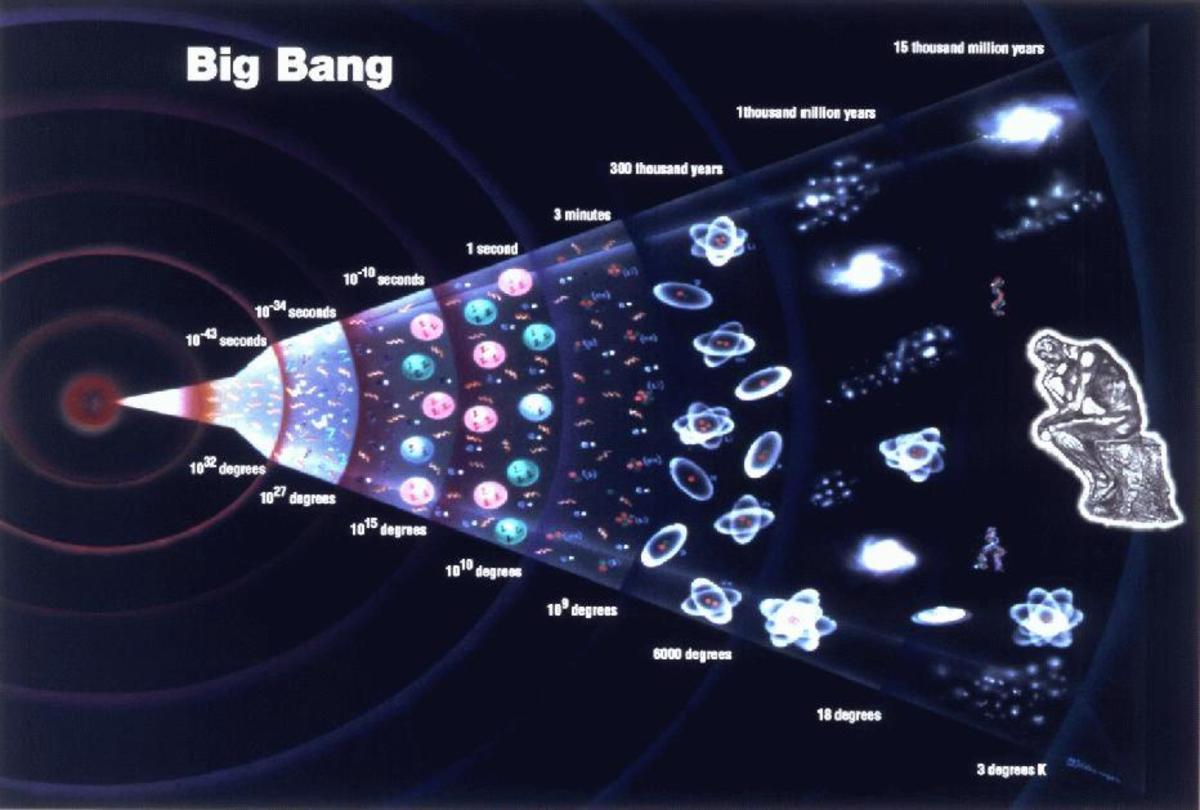Annotated Bibliography: Ontological Argument for the existence of God
The ontological argument is an argument for the existence of God. It states three points: God is that than which nothing greater can be conceived, existence in reality is greater than existence in the mind, and since God is the greatest thing that can be conceived, He must exist. This argument was developed by Anselm of Canterbury way back in the eleventh century. Over the years, many different variations for and against the argument have been developed. This argument has been extremely effective in proving that God indeed does exist, and the attacking arguments against it have either changed the original wording or the arguments intent, thus making them void.
Nagasawa, Yujin. "The Ontological Argument And The Devil." Philosophical Quarterly 60.238 (2010): 72-91. Academic Search Complete. Web. 14 Nov. 2011.
n philosophy and religion. He received his PhD from the Australian National University in 2004. Over the years, he has earned many prizes for his work. He is currently the University of Birmingham's Reader in Philosophy of Religion the three Schools of Philosophy, Theology, and Religion. Clearly, this author can be trusted as a reliable source and one that can be trusted.
This paper is organized in a cohesive and easy to understand manner. The main topic that Nagasawa covers is the parody objection. The parody objection, as Nagasawa explains it, is a response to the ontological argument which states that it would be possible to formulate similar arguments to prove the existence of the world’s greatest island or the devil. The parody objection is basically the idea that silly parallel arguments can be made to disprove or discredit the ontological argument. Nagasawa formulates his defense this central thesis, “the parody objection always fails because any parody of the ontological argument is either (i) not structurally parallel to the ontological argument (typically because its scope is too narrow), or (ii) not dialectically parallel to the ontological argument (typically because it makes extraneous assumptions to which proponents of the ontological argument are not committed)” (72-73). He explains that once the attacking arguments are modified to avoid the above conditions, it is no longer a parody. Rather, it is the ontological argument. So Nagasawa’s method for defending the ontological argument is to restructure the attacking arguments in order to reinforce the ontological argument.
The particular parody endorser that Nagasawa defends against is Peter Millican. Millican’s parody basically says that we can use the ontological argument to prove the existence of a “most effectively evil” Antigod (79). Nagasawa argues that Millican cannot prove his point unless he modifies all of the premises of the original argument. Because of the unparalleled argument, Millican’s parody objection is void.
This is a great source because it analyzes an objection to the ontological argument, specifically the parody argument, and it describes where and why the objection is flawed. It is very easy to understand, and it even includes bullet points with the argument simplified. His systematic, simplified approach makes this an excellent source to have, especially when defending against the parody argument.
Rowe, William. "Alvin Plantinga On The Ontological Argument." International Journal For Philosophy Of Religion 65.2 (2009): 87-92. Academic Search Complete. Web. 14 Nov. 2011.
Willliam Rowe is a ‘friendly atheist’ who has been through many years of schooling related to philosophy and religion. He received a Master of Divinity from CTS, a PhD in philosophy from the University of Michigan, and has taught at Purdue University. Rowe has researched both sides of the issue, has argued for both sides of the issue, and is a reliable author who can be trusted.
Rowe’s main claim is that the ontological argument begs the question of God’s existence “epistematically” (88). What he means by this is in order to attack Anselm’s argument, you need to know what Anselm is trying to prove. The ontological argument, as explained by Rowe, states that “among the beings that actually exist there is one than which a greater being not only doesn’t exist, but one than which a greater being is impossible” (88). The main point that Rowe is fighting towards is the difference between God being a merely possible being and one who actually exists. Rowe explains that “no merely possible being (a being that does not exist but
whose existence is possible) can exemplify Anselm’s concept of God” (88). Because of this reasoning, Rowe comes to the conclusion that God is an impossible being.
Rowe also concentrates on attacking Platinga’s argument for the existence of God, which Rowe considers to be a “sound” argument (88). Platinga created his own version of the ontological argument by using ‘possible’ instead of ‘conceivable’, and he then adds a few premises to explain his points. The only objection that Rowe can come up with concerns the third point about whether it’s possible that God exists in reality or not. He argues, similar to the above attack, that is is contradictory for God to exist in reality, for the same reason that is explained above. This is also where Rowe thinks that the ontological argument begs the question. This is because in order to know the third premise, we have to assume or know that God exists in the first place.
Rowe writes in long, drawn out sentences that are difficult but possible to understand. This is a good source because although he believes that the ontological argument is flawed, Rowe takes a respectful approach to explaining his views on the topic. He knows where he has been beat in an argument, and he tries to not fall into the trap of accepting that failure. He clearly describes how the ontological argument is pretty solid in most points. He explains, in a very detailed manner, how and why he believes that he third premise of the ontological argument is weak, unconvincing, and begs the question. He is definitely not ignorant to the weaknesses of both arguments, which makes this a valuable source.
Wilson, Eric. "The Ontological Argument Revisited: A Reply To Rowe." Forum Philosophicum: International Journal For Philosophy 15.1 (2010): 37-44. Academic Search Complete. Web. 14 Nov. 2011.
Eric Wilson is a trusted author because of his diverse experience in philosophy and religion. He has a PhD from Emory University, which he received in 2007, and many of his writings have been included in popular journals such as: History of Philosophy Quarterly, The Review of Metaphysics, Journal of the History of Philosophy, and Idealistic Studies.
Wilson writes with the main purpose of explaining how William Rowe misinterpreted Immanuel Kant’s position on the ontological argument. Because Wilson is a Christian, he argues for the God-believing side. Wilson claims that the main point of Kant’s argument is this; “what is thought of as real has no more properties than what is thought of as merely possible” (42). Although Kant’s point seems solid, Wilson explains how it leaves room for many refutations.
Kant’s argument is similar to Rowe’s argument in all but a few points. explains that Rowe contends “we can ascribe predicates to many things that do not exist” (44). Using this idea, Rowe’s argument infers that we can use the ontological argument to prove the existence of unreal things like Unicorns or gargoyles. We clearly know that these beasts do not exist. However, Wilson explains that Rowe’s argument, as well as Kant’s argument, does not take into account all the premises of the original ontological argument, which ends up making their arguments incomplete.
This is a good source for looking at a more in-depth analysis of Immanuel Kant’s argument, but it does not provide much of a refutation against them. This source is not very effective because it restates the already-popular arguments without providing new information. Lastly, because the source is only seven pages long, there is not much room to develop an effective defense. Wilson does not develop his points completely and his explanations only cover very specific topics. Therefore, this is not a very good source for the ontological argument.
Disclaimer
This was based on the sources that I received; I only had portions of the work, it might have been different if I had the entire thing, but I only had about 10-30 pages of each writing. If you've got any questions/concerns, feel free to comment below! And if you liked this, please rate it up! Thanks!







